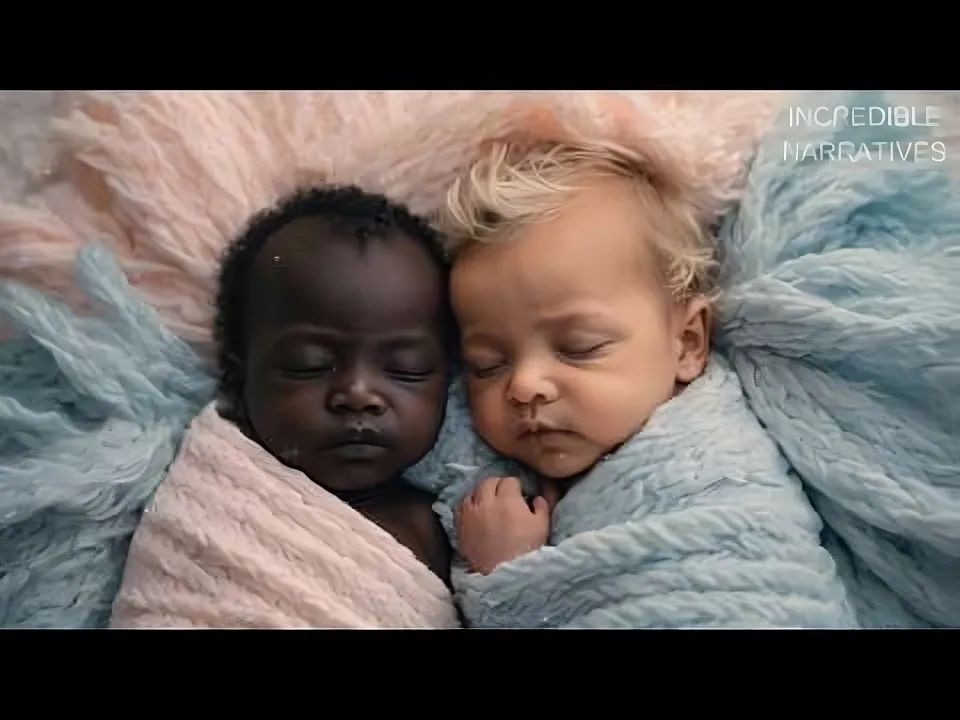In a rare and awe-inspiring twist of nature, a white woman has given birth to twins—one with white skin and the other with black skin—leaving doctors and the world amazed by the extraordinary outcome.
The remarkable birth, which occurred at a hospital in the UK, has captured the attention of geneticists, social media users, and curious minds around the globe. The mother, who is Caucasian, and her husband, a black man of African descent, welcomed fraternal twins who appear to be complete opposites in skin tone.
One of the babies was born with fair skin, light eyes, and golden hair, closely resembling their mother. The other twin, however, was born with dark skin, curly black hair, and brown eyes, inheriting the father’s African features. Though medically rare, such an event is possible in the case of fraternal twins, who are conceived from two separate eggs fertilized by two different sperm cells, allowing each child to inherit a unique combination of genes.
Medical professionals confirmed that both babies are healthy and thriving. The attending physician described the birth as a “once-in-a-million genetic phenomenon,” adding that while skin tone variation among siblings is common, such a drastic contrast between twins is incredibly unusual.
The couple, overjoyed by the safe delivery, expressed amazement and gratitude. “We knew our babies would be beautiful, but we never expected this. They are perfect in every way, and we love how unique they both are,” said the mother.
Genetic experts explain that skin color is determined by multiple genes, and in interracial couples, a wide range of combinations is possible. Still, the odds of biracial twins being born with such starkly different complexions are extremely low.
The story has quickly gone viral on social media, with many praising the twins as a symbol of unity and the beauty of diversity. “This is living proof that love sees no color—and that genetics can be full of beautiful surprises,” wrote one commenter.
As the family adjusts to life with their extraordinary newborns, they’ve embraced the public’s fascination, hoping their story helps challenge outdated beliefs about race, identity, and what it means to be family in a modern world.
